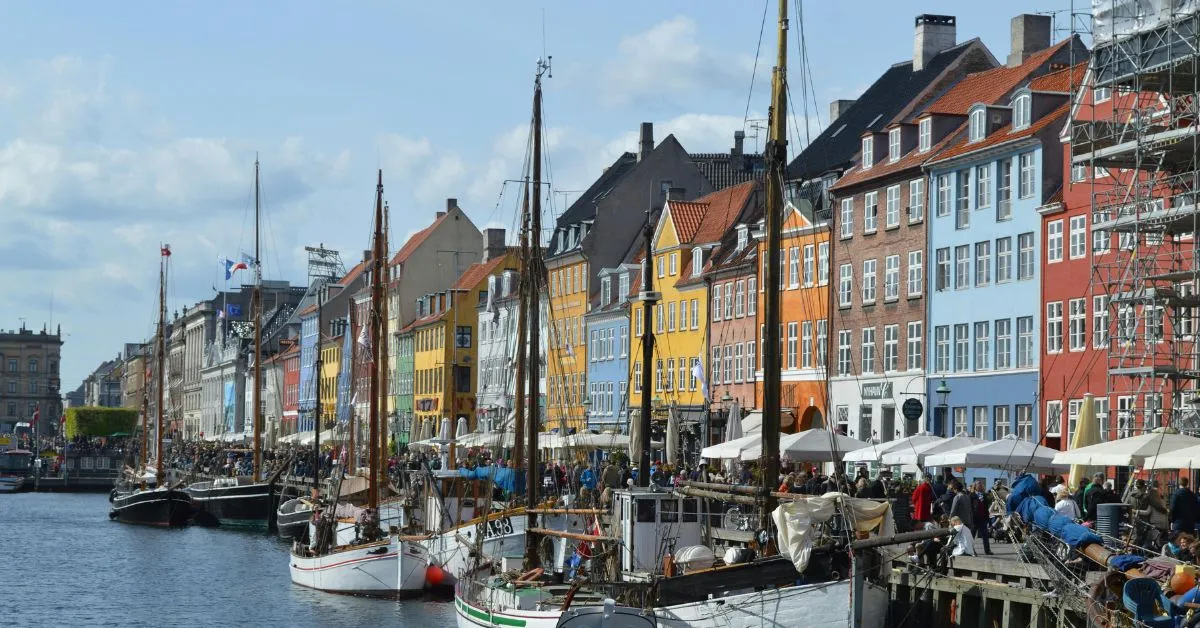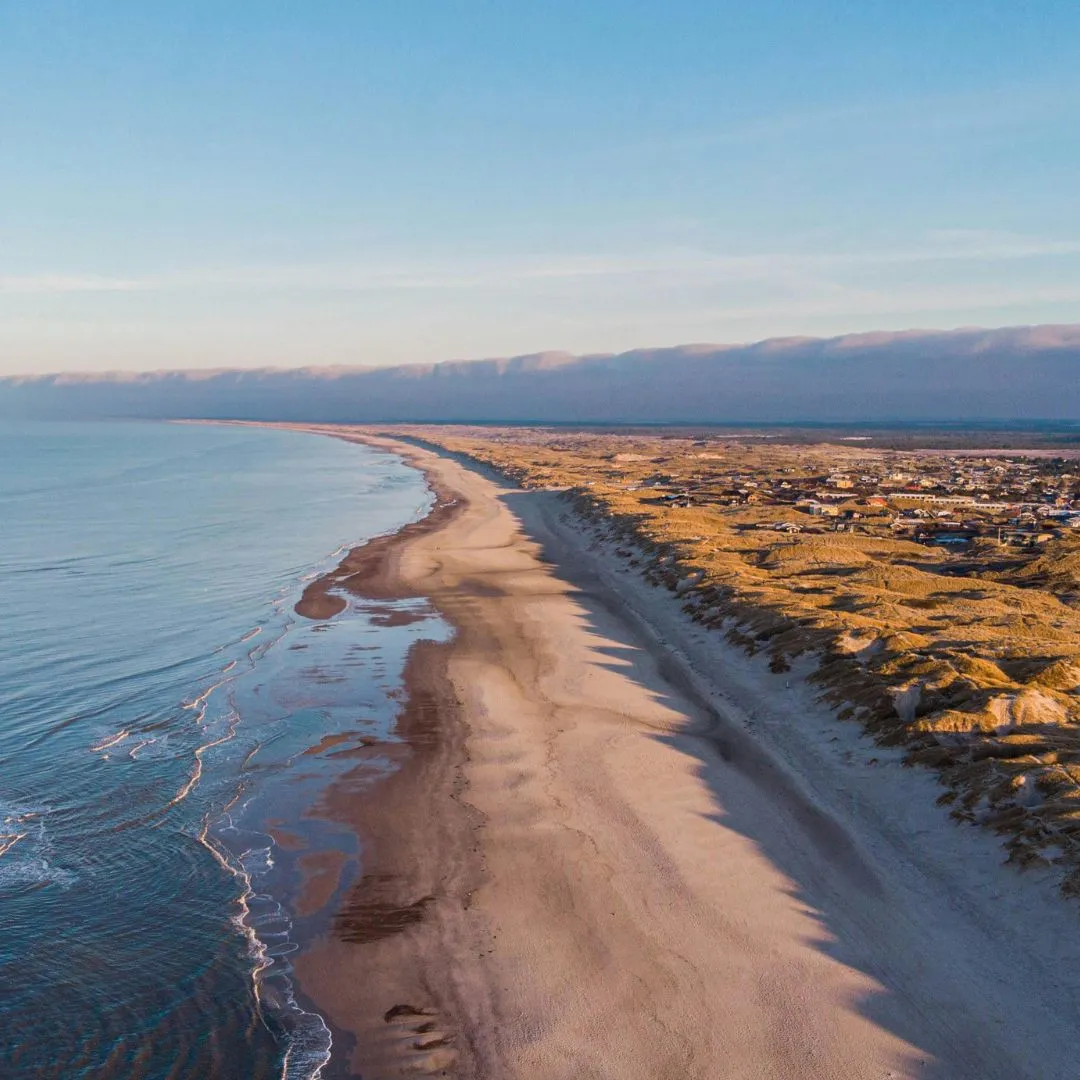For Nepali students dreaming of studying abroad, Europe has become one of the most attractive destinations. While countries like the UK, Australia, and Canada are already popular, Denmark has rapidly emerged as a preferred choice because of its world-class education system, innovative teaching style, affordable living compared to Western Europe, and high employability after graduation.
But before you can experience Denmark’s opportunities, the first milestone is obtaining a Denmark student visa from Nepal. This process requires careful planning, complete documentation, and a strategic approach. Many students get confused by the procedures, deadlines, and interview requirements, leading to unnecessary delays or even rejections.
This comprehensive guide will walk you through the 5 positive steps to success in your Denmark student visa journey. From choosing the right course to preparing for your visa interview, each section will help you avoid common mistakes and maximize your chances of approval. By the end of this blog, you’ll have a clear roadmap to confidently pursue higher education in Denmark.

Why Choose Denmark for Higher Education?
Before we explore the 5 steps, let’s understand why Denmark is such a strong option for Nepali students.
1. Quality Education System
Denmark is home to some of the most prestigious universities in Europe. Institutions like the University of Copenhagen, Aarhus University, and the Technical University of Denmark consistently rank among the world’s best. Danish universities emphasize practical learning, critical thinking, and innovation. For students from Nepal, this means exposure to research-driven education and international learning standards.
2. Affordable Tuition and Scholarships
Compared to destinations like the USA or the UK, tuition fees in Denmark are relatively lower. On average, international students can expect to pay between €6,000–€16,000 annually, depending on the program. Several scholarship options are available, including government scholarships, Erasmus+ grants, and university-specific financial aid programs. For Nepali students, this significantly reduces the financial burden of studying abroad.
3. Work Opportunities in Denmark
A Denmark student visa allows international students to work part-time while studying. You can work up to 20 hours per week during the semester and full-time during June, July, and August. This makes it easier to manage living expenses and gain valuable work experience. After graduation, Denmark also offers post-study work permits, giving you time to find a job and potentially apply for permanent residency.
4. Safe and Inclusive Environment
Denmark consistently ranks as one of the world’s safest countries. For Nepali students and their families, this offers peace of mind. The Danish people are welcoming, open-minded, and supportive of cultural diversity, making it easier for international students to adapt.
5. Growing Nepali Community
Over the years, more Nepali students have chosen Denmark as their education destination. This growing community offers peer support, cultural connections, and valuable networking opportunities.
Step 1: Research and Choose the Right Course & University
The journey to obtaining a Denmark student visa from Nepal starts with selecting the right university and course.
- Identify Career Goals: Think about your long-term aspirations. Do you want to work in IT, business, engineering, or healthcare?
- Shortlist Universities: Consider globally recognized universities such as:
- University of Copenhagen
- Aarhus University
- Technical University of Denmark
- Copenhagen Business School
- Check Language Requirements: Most universities offer English-taught programs. Ensure you meet the IELTS or TOEFL score requirements.
- Consider Location & Lifestyle: Copenhagen is vibrant and urban, while cities like Aarhus and Odense offer quieter student student-friendly environments.
- Verify Accreditation: Always ensure your chosen university is accredited, as this directly impacts your visa application.
💡 Tip: Connect with alumni or student associations from Nepal who are already studying in Denmark to get firsthand insights.
Step 2: Meet Denmark Student Visa Requirements
Understanding the Denmark student visa requirements is crucial. Missing even one document can lead to delays or rejection.

Key Requirements for Nepali Students:
- Valid Passport – Must be valid for the duration of your stay.
- Acceptance Letter – From a recognized Danish institution.
- Proof of Financial Capacity – Students must demonstrate they can cover living expenses (around DKK 6,397/month, which is roughly NPR 103,000).
- Language Proficiency Proof – IELTS, TOEFL, or PTE scores.
- Health Insurance – Coverage valid for your entire stay in Denmark.
- Biometric Residence Permit (BRP) – Required for all non-EU students.
- Clean Academic Records – Authentic transcripts and certificates.
Common Mistakes to Avoid
- Submitting incomplete financial documents.
- Applying to non-accredited programs.
- Not providing sufficient health insurance proof.
- Ignoring the timelines (apply at least 3 months in advance).
Step 3: Prepare and Submit the Visa Application
Once your documents are ready, the next step is applying for your Denmark student visa from Nepal.
Application Process
- Apply Online: Create a profile on the Danish Immigration Service website.
- Pay Application Fee: Around €255 (may vary).
- Submit Biometrics: Visit the VFS Global center in Nepal or India for biometrics.
- Track Application: Keep monitoring the status online.
Processing Time
Visa decisions usually take 60 days, but it’s best to apply well in advance.
Tips for a Smooth Process
- Double-check all documents before submission.
- Ensure financial proof covers at least one year of expenses.
- Always keep extra copies of documents.
Step 4: Demonstrate Financial Stability & Language Proficiency
Financial Stability
The Danish government wants assurance that students can support themselves without relying on illegal work. For this reason, financial proof is one of the most important parts of the application.
- Bank Balance Requirement: DKK 6,397 per month (for a full year, approximately DKK 76,764).
- Acceptable Proofs: Bank statements, education loans, and sponsor letters.
- Sponsor Guidelines: If your parents are sponsoring you, include proof of relationship, income tax returns, and bank balance certificates.
Language Proficiency
Denmark requires proof of English proficiency for most programs.
- IELTS: Minimum 6.0 overall.
- TOEFL iBT: Around 83.
- PTE: 58–64 depending on university.
💡 Tip: Preparing for IELTS or PTE early not only helps in university admission but also strengthens your visa application.
Step 5: Attend the Interview & Travel Preparation
Visa Interview Preparation
Although not always mandatory, some applicants may be asked for an interview. Be ready for questions like:
- Why did you choose Denmark?
- How will you finance your studies?
- What are your career goals after graduation?
- Do you plan to return to Nepal after your studies?
Pro tip: Be honest, clear, and confident. Consistency between your documents and your answers is key.
Travel Preparation Checklist
- Book accommodation before arrival.
- Buy comprehensive health insurance.
- Keep your acceptance letter, financial documents, and insurance handy.
- Carry some Danish Krone (DKK) for initial expenses.
Denmark Student Visa Success Rate from Nepal
The Denmark student visa success rate is generally high if applicants meet all the requirements. Based on recent data:
- The success rate for genuine students from Nepal is above 70–80%.
- Rejections usually occur due to insufficient financial proof, a weak academic background, or a lack of a genuine study purpose.
Compared to other European countries, Denmark has a favorable record of granting visas to well prepared Nepali students.
Life in Denmark as a Nepali Student
Cultural Adaptation
Denmark is modern yet traditional. While students may initially face cultural shocks, adapting is easier due to the presence of English-speaking locals and international communities.
Cost of Living
- Accommodation: DKK 2,500–4,000 per month.
- Food: DKK 1,500–2,000.
- Transport: DKK 300–400.
- Miscellaneous: DKK 1,000.
On average, a student needs about DKK 6,500–7,500 per month, aligning with visa requirements.
Work-Life Balance
Working part-time helps cover expenses. Many Nepali students work in restaurants, supermarkets, or delivery services.

Post-Study Opportunities
After graduation, you can extend your residence permit to search for a job. If successful, this can lead to permanent residency and even citizenship in the long run.
Expert Tips for Denmark Student Visa Success
- Start your visa application at least 3–4 months before intake.
- Keep multiple financial documents ready (bank statements, fixed deposits, sponsor letters).
- Choose a course that aligns with your past studies and career goals.
- Be honest during the visa interview.
- Seek guidance from reliable consultancies in Nepal with a track record in European student visas.
Securing a Denmark student visa from Nepal may seem challenging at first, but with proper planning and the right guidance, it is entirely achievable. By following the 5 positive steps, choosing the right course, meeting requirements, submitting documents correctly, proving financial stability, and preparing for the interview, you can maximize your chances of success.





